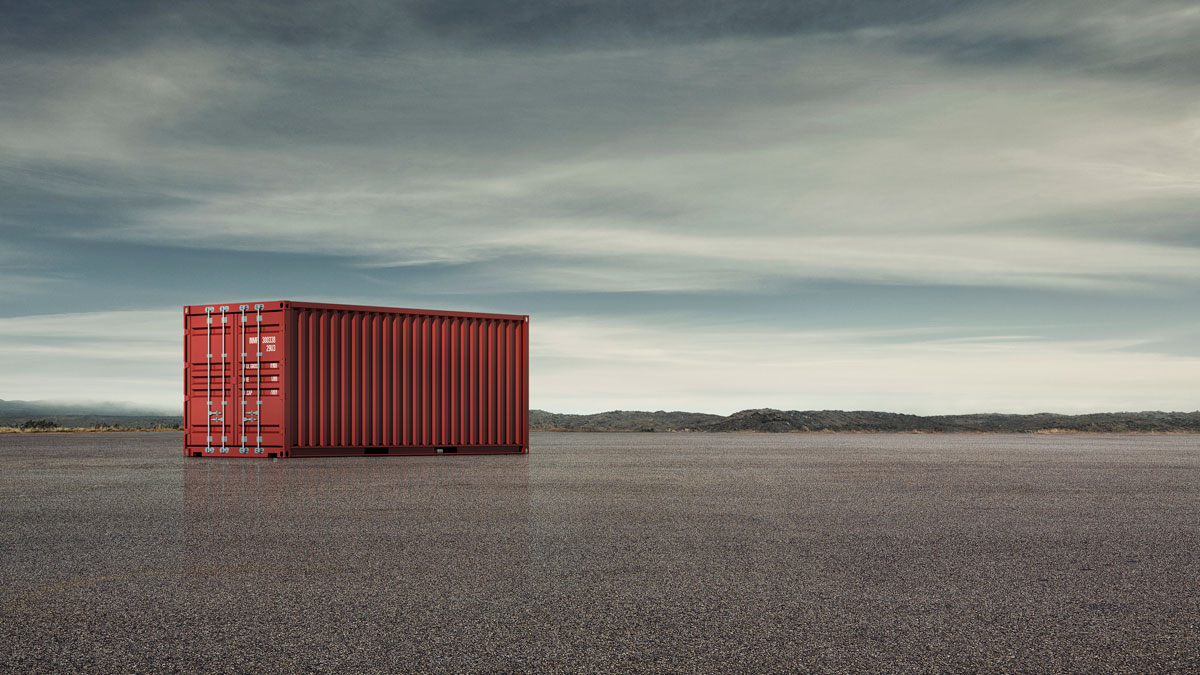CRITERION: Save it for a rainy day with these ASX storage stocks

Picture: Getty Images
With traditional industrial property sectors such as office and retail looking shaky, many investors are seeking out assets more resilient to a downturn.
Self-storage property has proved a popular safe harbour, with the sector growing at up to 14 per cent a year in some geographies.
Tailwinds include the enduring popularity of working from home, which means residents are more likely to notice how cramped their digs are.
The facilities are also widely used by backyard e-commerce businesses to store their inventory. Other supportive influences are the re-emergence of transient migrant workers and downsizing activity related to the ageing population.
For landlords, a box full of pots and pans and spare underpants is far less troublesome than a human tenant.
Tracking 280 self-storage facilities, property agent Cushman & Wakefield’s self-storage performance indicator index shows that sleepy Adelaide led the way with 14 per cent revenue growth in the 12 months to March 2023, with Sydney not far behind on 12 per cent.
Perth, Brisbane and Melbourne growth rates hovered around 7-8 per cent.
Adelaide also blitzed the field with average fees per square metre, up 11 per cent to $294. Melbourne rates were stagnant at $343, while Sydney rates climbed 4.8 per cent to $425.
Cushman & Wakefield’s Linda Sharkey cautions that operators may have pushed fee increases too hard, with some occupancy levels declining. However she believes the growth phase is far from over, despite a “bumpier road ahead.”
National Storage (ASX:NSR) is regarded as the biggest operator with a circa 13 per cent market share, followed by the recently listed Abacus Storage King (ASX:ASK) and the private Kennards Self Storage.
This trio accounts for about 40 per cent of the market. Otherwise, the $2 billion a year sector remains highly fragmented, served by almost 3700 operators.
National Storage had been the only listed pure-play exposure, until Abacus Storage King robbed the company of its orphan status by destapling (demerging) from Abacus Property and listing on August 1.
Abacus Storage King also raised $225 million to buy some more facilities – as you do – taking its tally to 131 centres covering 580,000 square metres. The portfolio is valued at $3.07 billion.
National Storage has 230 facilities covering one million square lettable metres, valued at $4.48 billion. Then there’s a pipeline of 40 more projects that could add 350,000 square metres and increase annual gross revenue by $100 million.
Last month, National Storage met its earnings guidance of 11.5 cents per share for the year to June 30 2023, 8.5 per cent higher year on year despite what managing director Andrew Catsoulis describes as “marked changes in the economic environment”.
The company points to flat earnings this year.
Abacus Storage King shares have traded stubbornly below its equity raising price of $1.41, but its performance has been far from disastrous.
National Storage shares have declined 5 per cent over the last 12 months, but management points to a 300 per cent total shareholder returns since listing a decade ago.
As tends to be the case in any fragmented sector, the well-capitalised big players will subsume lesser rivals more vulnerable to a downturn.
The sector is also a beneficiary of technology, such as keyless access and cloud-based gate access and surveillance.
For instance, the private Swift Storage has rolled out completely unmanned sites in Brisbane that rely on online enrolments.
On the flip side, finding suitable sites is always a challenge and as a result there’s a tendency to build multi-storey facilities. Many would-be users will also consider cheaper options, such as Dad’s garage (not that we’re grumbling – or perhaps a little).
On balance, though, self-storage success looks all boxed up and safely locked in.
The views, information, or opinions expressed in the interviews in this article are solely those of the interviewees and do not represent the views of Stockhead. Stockhead does not provide, endorse or otherwise assume responsibility for any financial product advice contained in this article.
This story does not constitute financial product advice. You should consider obtaining independent advice before making any financial decisions.
UNLOCK INSIGHTS
Discover the untold stories of emerging ASX stocks.
Daily news and expert analysis, it's free to subscribe.
By proceeding, you confirm you understand that we handle personal information in accordance with our Privacy Policy.








